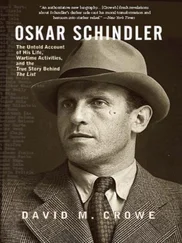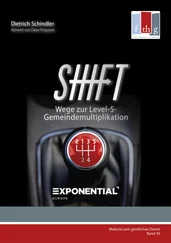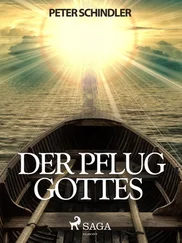He was an enterprising but humane man, and if asked to justify the existence of his profitable factory inside the camp, would have argued that it kept nearly four thousand prisoners employed and therefore safe from the death mills. Raimund Titsch, a man in his early forties, slight and private and likely to leave the party early, was Madritsch’s manager, smuggled in truckloads of food for his prisoners (an enterprise that could have earned him a fatal stay in Montelupich prison, the SS jail, or else Auschwitz) and agreed with Madritsch. Such was the regular roster of dinner companions at Herr Commandant Goeth’s villa.
The four women guests, their hair elaborately coiffed and their gowns expensive, were younger than any of the men. They were better-class whores, German and Polish, from Cracow. Some of them were regular dinner guests here. Their number permitted a range of gentlemanly choice for the two field-grade officers. Goeth’s German mistress, Majola, usually stayed at her apartment in the city during these feasts of Amon’s. She looked on Goeth’s dinners as male occasions and thus offensive to her sensibilities.
There is no doubt that in their fashion the police chiefs and the Commandant liked Oskar. There was, however, something odd about him. They might have been willing to write it off in part as stemming from his origins. He was Sudeten German —Arkansas to their Manhattan, Liverpool to their Cambridge. There were signs that he wasn’t right-minded, though he paid well, was a good source of scarce commodities, could hold his liquor and had a slow and sometimes rowdy sense of humor. He was the sort of man you smiled and nodded at across the room, but it was not necessary or even wise to jump up and make a fuss over him. It is most likely that the SS men noticed Oskar Schindler’s entrance because of a frisson among the four girls. Those who knew Oskar in those years speak of his easy magnetic charm, exercised particularly over women, with whom he was unremittingly and improperly successful. The two police chiefs, Czurda and Scherner, now probably paid attention to Herr Schindler as a means of keeping the attention of the women. Goeth also came forward to take his hand. The Commandant was as tall as Schindler, and the impression that he was abnormally fat for a man in his early thirties was enhanced by this height, an athletic height onto which the obesity seemed unnaturally grafted. The face seemed scarcely flawed at all, except that there was a vinous light in the eyes. The Commandant drank indecent quantities of the local brandy.
He was not, however, as far gone as Herr Bosch, Płaszów’s and the SS’ economic genius. Herr Bosch was purple-nosed; the oxygen which by rights belonged to the veins of his face had for years gone to feed the sharp blue flame of all that liquor. Schindler, nodding to the man, knew that tonight Bosch would, as usual, put in an order for goods.
“A welcome to our industrialist,” boomed Goeth, and then he made a formal introduction to the girls around the room. The Rosner brothers played Strauss melodies through this, Henry’s eyes wandering only between his strings and the emptiest corner of the room, Leo smiling down at his accordion keys.
Herr Schindler was now introduced to the women. While Herr Schindler kissed the proffered hands, he felt some pity for these Cracow working girls, since he knew that later—when the slap-and-tickle began—the slap might leave welts and the tickle gouge the flesh. But for the present, Hauptsturmführer Amon Goeth, a sadist when drunk, was an exemplary Viennese gentleman.
The predinner conversation was unexceptional. There was talk of the war, and while SD chief Czurda took it upon himself to assure a tall German girl that the Crimea was securely held, SS chief Scherner informed one of the other women that a boy he knew from Hamburg days, a decent chap, Oberscharführer in the SS, had had his legs blown off when the partisans bombed a restaurant in Czestochowa. Schindler talked factory business with Madritsch and his manager Titsch. There was a genuine friendship between these three entrepreneurs. Herr Schindler knew that little Titsch procured illegal quantities of black-market bread for the prisoners of the Madritsch uniform factory, and that much of the money for the purpose was put up by Madritsch. This was the merest humanity, since the profits in Poland were large enough, in Herr Schindler’s opinion, to satisfy the most inveterate capitalist and justify some illegal outlay for extra bread. In Schindler’s case, the contracts of the Rustungsinspektion, the Armaments Inspectorate—the body that solicited bids and awarded contracts for the manufacture of every commodity the German forces needed—had been so rich that he had exceeded his desire to be successful in the eyes of his father. Unhappily, Madritsch and Titsch and he, Oskar Schindler, were the only ones he knew who regularly spent money on black-market bread.
Near the time when Goeth would call them to the dinner table, Herr Bosch approached Schindler, predictably took him by the elbow and led him over by the door where the musicians played, as if he expected the Rosners’ impeccable melodies to cover the conversation. “Business good, I see,” said Bosch.
Schindler smiled at the man. “You see that, do you, Herr Bosch?”
“I do,” said Bosch. And of course Bosch would have read the official bulletins of the Main Armaments Board, announcing contracts awarded to the Schindler factory.
“I was wondering,” said Bosch, inclining his head, “if in view of the present boom, founded, after all, on our general successes on a series of Fronts… I was wondering if you might wish to make a generous gesture. Nothing big. Just a gesture.”
“Of course,” said Schindler. He felt the nausea that goes with being used, and at the same time a sensation close to joy. The office of police chief Scherner had twice used its influence to get Oskar Schindler out of jail. His staff were willing now to build up the obligation of having to do it again.
“My aunt in Bremen’s been bombed out, poor old dear,” said Bosch. “Everything! The marriage bed. The sideboards—all her Meissen and crockery. I wondered could you spare some kitchenware for her. And perhaps a pot or two—those big tureen things you turn out at DEF.” Deutsche Emailwaren Fabrik (german Enamelware Factory) was the name of Herr Schindler’s booming business. Germans called it DEF for short, but the Poles and the Jews had a different sort of shorthand, calling it Emalia.
Herr Schindler said, “I think that can be managed. Do you want the goods consigned direct to her or through you?”
Bosch did not even smile. “Through me, Oskar. I’d like to enclose a little card.”
“Of course.”
“So it’s settled. We’ll say half a gross of everything—soup bowls, plates, coffee mugs. And half a dozen of those stewpots.” Herr Schindler, raising his jaw, laughed frankly, though with weariness. But when he spoke he sounded complaisant. As indeed he was. He was always reckless with gifts. It was simply that Bosch seemed to suffer constantly from bombed-out kinfolk.
Oskar murmured, “Does your aunt run an orphanage?”
Bosch looked him in the eye again; nothing furtive about this drunk. “She’s an old woman with no resources. She can barter what she doesn’t need.”
“I’ll tell my secretary to see to it.”
“That Polish girl?” said Bosch. “The looker?”
“The looker,” Schindler agreed.
Bosch tried to whistle, but the tension of his lips had been destroyed by the overproof brandy and the sound emerged as a low raspberry. “Your wife,” he said, man to man, “must be a saint.”
“She is,” Herr Schindler admitted curtly. Bosch was welcome to his kitchenware, but Schindler didn’t want him talking about his wife.
Читать дальше












